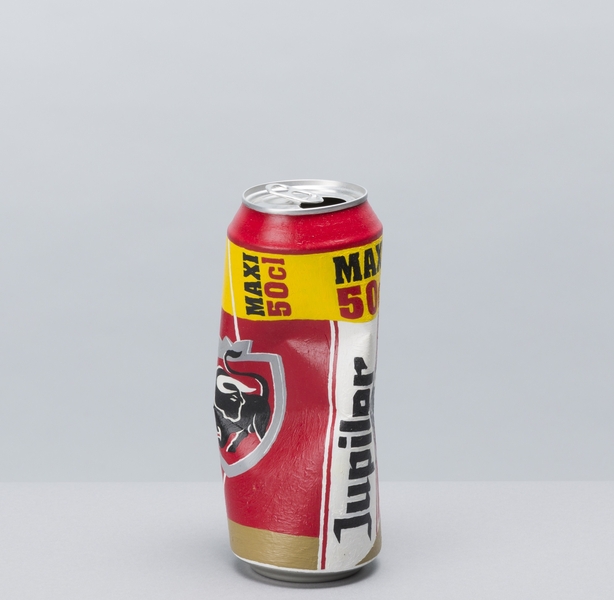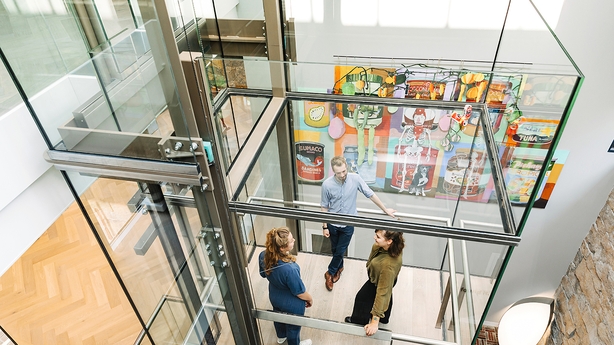A Dutch museum has recovered one of its artworks that looks like two empty beer cans after a lift engineer accidentally threw it in a bin thinking it was rubbish.
The work, entitled "All The Good Times We Spent Together" by French artist Alexandre Lavet, appears on first glance to be two discarded and dented beer tins.
However, a closer look shows they are in fact meticulously hand-painted with acrylics and "required a lot of time and effort to create", according to the museum.
But their artistic value was lost on the engineer, who saw them displayed in a lift and chucked them in the bin.
Froukje Budding, a spokeswoman for the LAM museum in Lisse, western Netherlands, said that artworks are often left in unusual places - hence the display in a lift.
"We try to surprise the visitor all the time," she said.

Curator Elisah van den Bergh returned from a short break and noticed that the cans had vanished.
She recovered them from a bin bag just in the nick of time as they were about to be thrown out.
"We have now put the work in a more traditional place on a plinth so it can rest after its adventure," Ms Budding said.
She stressed there were "no hard feelings" towards the employee, who had just started at the museum.
"He was just doing his job," she said.
Sietske van Zanten, the museum's director, said: "Our art encourages visitors to see everyday objects in a new light."
"By displaying artworks in unexpected places, we amplify this experience and keep visitors on their toes," added Ms Van Zanten.

With this in mind, the cans are unlikely to stay on their traditional plinth for long, said Ms Budding.
"We need to think hard about a careful place to put them next," she said.

